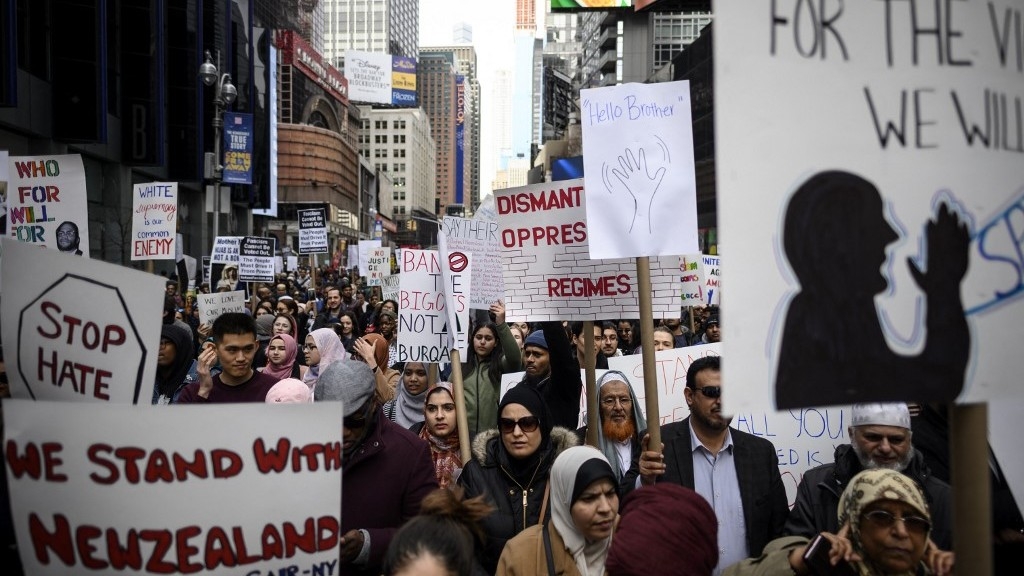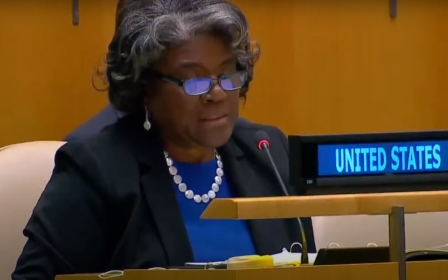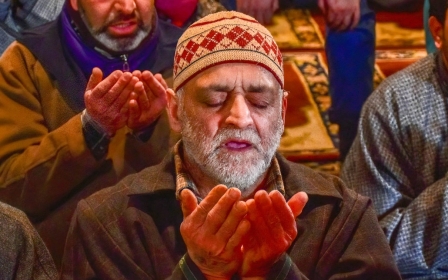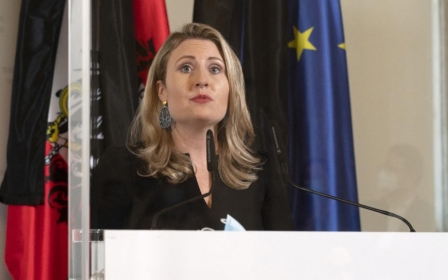'Islamophobia is global': Muslim groups urge action as UN targets anti-Muslim discrimination

A coalition of more than a dozen Muslim organisations from several countries is calling on the international community to do more to combat anti-Muslim sentiment, as the United Nations' first International Day to Combat Islamophobia is observed officially.
The UN's International Day to Combat Islamophobia will take place every year on 15 March, commemorating the 2019 Christchurch mosque shootings in New Zealand, which resulted in 51 worshippers dead.
While faith leaders and organisations are grateful for this day of remembrance, they believe further efforts are needed, as experts say discrimination against Muslim communities is increasing worldwide.
In a letter signed by 15 organisations across the world, including the Muslim Council of Britain, the Council on American-Islamic Relations, the Committee for Justice and Liberty in France, Asociacion Musulmana por los Derechos Humanos in Spain and the Australian Federation of Islamic Councils, five calls to action were made.
“We call on governments to recognize the International Day to Combat Islamophobia, condemn anti-Muslim bigotry and racism, dismantle Islamophobic policies and laws, and ensure that all of their citizens receive fair treatment under the law,” the first call to action said.
“We know that Islamophobia has gone global. The Christchurch shooter who murdered 51 Muslim men, women and children in New Zealand on March 15th four years ago was just one horrific example of how dangerous anti-Muslim extremism can become,” the letter said.
The UN General Assembly voted last year to observe the day annually.
The resolution was supported by 55 Muslim-majority countries. It was also co-sponsored by a number of states including Russia, which is waging a war in Ukraine, and China. Meanwhile, China’s decision to co-sponsor the UN day on Islamophobia has been condemned by Uyghur activists, who - along with the US - accuse Beijing of committing genocide against the Muslim minority.
While they did not vote against the resolution, France and India objected to the creation of an UN-recognised international day to combat Islamophobia.
'Muslims must unite'
A 2021 report by the UN special rapporteur on freedom of religion concluded that suspicion, discrimination, and hatred towards Muslims have risen to "epidemic proportions", citing as examples both France and India.
New Delhi has been accused by human rights groups and the UN Human Rights Council of discrimination against Muslims and of stoking violence and hate crimes by Hindu nationalists against Muslim communities. A recent report also found that the largest number of Islamophobic tweets between 2019 and 2021 came from India.
In regards to China, Muslim-majority countries belonging to the Organisation of Islamic Cooperation have been largely silent on the issue of Uyghur persecution, and some countries have instead focused on cultivating closer economic and diplomatic ties with the country.
The letter calls on Muslim-majority nations to challenge Islamophobia internationally. It also says that governments should protect places of worship from hate crimes, political leaders should engage with Muslim constituents, and communities should build bridges with neighbours of different faiths.
"We call on governments in Muslim-majority nations to support and defend Muslims who experience Islamophobia in other countries, even if that means challenging the actions of economic partners and so-called allies," the letter stated.
“All of this is unacceptable, and all of it is interrelated. Those who target Muslims in one country inspire others around the world to do the same and use similar rhetoric to justify their injustices,” the letter said.
Anti-Muslim bigotry and racism manifest in different forms. These forms include hate speech, restrictions of religious freedom, vandalism, crimes, arbitrary arrests, mass surveillance, ethnic cleansing, and genocide, the letter stated.
“Just as anti-Muslim extremists have united in their dedication to targeting Muslims, Muslims must unite in our dedication to defending each other and advancing justice for all people.”
Middle East Eye delivers independent and unrivalled coverage and analysis of the Middle East, North Africa and beyond. To learn more about republishing this content and the associated fees, please fill out this form. More about MEE can be found here.





